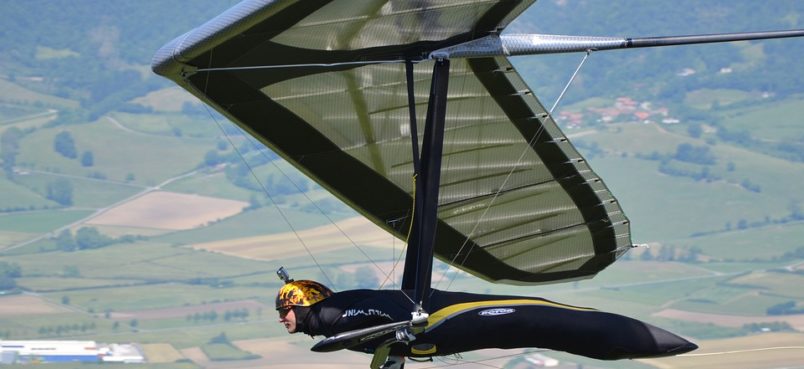What are high risk activities?
Affordable life insurance for high risk activities like sky diving, auto racing, scuba diving, rock climbing, private pilots, etc. is possible.
Obviously, individuals participating in these high risk activities warrant a closer look when being evaluated for life insurance. This article will talk about what life insurance underwriters are looking for when evaluating these particular high risk activities. It will also discuss the extra rating that may be charged based on the details of each activity.
Who underwrites life insurance for high risk activities?
It is important to remember that each life insurance company has their own particular underwriting criteria. Each company evaluates health and lifestyle differently.
But, it is also important to remember that a few life insurance companies will underwrite high risk activities better than others. These special risk companies will often times not penalize you as much as say a traditional underwriting company would.
In fact, often times a traditional company may charge and extra premium for the high risk activity when a special risk carrier will not.
It is very important to work with an agent who specializes in representing several of these special risk companies. This allows the agent to shop among the best carriers available. Fortunately, you have landed on this website and we are experts with this type of underwriting.
Evaluating high risk activities
Here we will breakdown a few of the high risk activities that insurers typically see. Below you will find the questions that most life insurance underwriters will need answers to in order to properly evaluate a risk:
Racing–
- Do you hold a competition driver’s license from any organization? If yes, name.
- Have you attended any type of driver’s school? If yes, which?
- How long have you participated in racing?
- Date of your last race? Where did race take place?
- What type of track or course do you race? I.E. dirt oval, simulated road, off road, etc.
- How far do you travel to race?
- Have you ever competed or intend to compete outside the U.S.?
- Do you intend to enter a new class of competition? If yes, what?
- Have you ever done or do you intend to do stunt driving?
- Is racing your full time occupation?
- Do you compete on a traveling circuit?
- Which racing categories have you participated or plan to particpate in? I.E. All Terrain? Auto Crash? Drag Racing? Kart? Midget? Off Road? Sports Car? (Formula 1, Atlantic, Continental, Ford, Vee, Other)
- Grand Touring? IMSA GT? Production? Rally? Showroom Stock? Sports Racing? Sprint Cars? Stock Cars (Nascar)?
- Name of organization sanctioning races?
- Do you own a competition vehicle? Make/Model, Displacement, Class
- Details on number of races last 12 months, next 12 months. Miles Per Race. Maximum Speeds.
Skydiving-
- Do you belong to a club affiliated with the United States Parachute Association? If yes, which affiliation? Amateur or Professional?
- Do you follow the regulations and safety standards established by the USPA?
- How long have you been skydiving?
- Number of jumps? Last 12 months? One to two years ago?
- Do you take part in exhibitions or competition?
- Do you receive remuneration for skydiving activity?
- Are you an airplane pilot or do you intend to become one?
Rock or Mountain Climbing-
- Are you a member of a club?
- Type of Climbing? I.E. Trails, Rock, Snow & Ice, Mountain?
- Frequency of each?
- Date and location of last climb?
- How long have you been climbing?
- What courses have you completed and what years?
- Do you ever climb without rope? If yes, how often, location and degree of difficulty?
- Do you ever climb alone? If no, how many typically in your party?
- Are you a lead climber?
- Name geographical location, type of climbing and level?
- Do you plan to go on any overseas expeditions over next 2 years?
- Time of year you climb?
- List the equipment you normally carry?
- On average climb, how many hours/days are you climbing?
- What would your average height be? What are your level of difficulties?
- Maximum height climbed, level and date?
- What are your future climbing goals and climbing locations?
Scuba Diving-
- Are you a certified diver? If yes, name of organization? Date of certification? Hours of instruction? If no, why?
- What type of equipment do you use? I.E. Wet suit, scuba (number of tanks, open or closed circuit, type of air supply?)
- Is your equipment regularly serviced?
- Do you use experimental equipment?
- Are you a member of an organized club?
- What is the maximum depth obtained?
- Do you ever dive alone?
- What are the locations of your diving activities? I.E. Lakes, ocean beaches, deep sea, bays, caverns or caves?
- Do you dive for salvage or exploration?
- Within last 12 months give depth( 5o feet or less, 75-100, over 100) number of dives and average time underwater?
Hang gliding-
- How many years have you been hang gliding?
- How many flights have you made in the past 3 years?
- How many flights do you anticipate in next 2 years?
- Where do you frequently hang glide?
- Are you a member of a hang gliding club or ultralight club?
- Are you an amateur or instructor?
- Do you participate in hang gliding competitions, events, stunts?
Base Jumping-
- How many years have you been base jumping?
- How many jumps have you made in the past 3 years?
- How many jumps do you anticipate making in next 2 years?
- Where do you frequently jump?
- Are you a member of a base jumping club?
- Do you participate in base jumping competitions, events or stunts?
Bungee Jumping-
- How many years have you been bungee jumping?
- How many jumps have you made in the past 3 years?
- How many jumps do you anticipate making in the next 2 years?
- Where do you frequently jump?
- Are you a member of a bungee jumping club?
- Do you participate in bungee jumping competitions, events or stunts?
Aviation-
- Have you ever flown as a pilot or crew member, or do you intend to do so?
- What type of license or certificate do you hold? Date of issue?
- Do you intend to qualify for a higher certificate?
- Do you hold a current FAA medical certificate?
- Total number of hours flown as a pilot?
- Have you flown, or do you intend to fly a prototype, or experimental, or home built aircraft?
- Do you or have you ever participated in aerobatics, air racing, or stunt flying?
- Have you ever had an aircraft accident or been grounded, fined, reprimanded for violation of air regulations?
- Type of flying (commercial, Employer owned aircraft, crop dusting, student instruction, freight carrying, military, non-commercial pleasure, personal business, instruction as student)
- Hours contemplated next 12 months, previous 12 months, one to two years ago?
Other information for high risk activities
In addition to the answers to the questions above, it is also important that underwriters have details on the amount of coverage needed, the named beneficiaries and the type of protection. Any pre-exisiting medical conditions such as heart disease, diabetes, high blood pressure, etc. should also be disclosed.
Flat extras for high risk activities
As mentioned earlier all life insurance carriers evaluate health and lifestyle differently. But, when it comes to evaluating high risk activities most life insurance carriers typically use something called a flat extra that is added to the base premium.
A flat extra is a surcharge that covers the additional risk posed by the high risk activity. Here is an example of how an underwriter may view a particular risk.
Joe is a healthy 40 year old non-smoker in need of $100,000 of term life insurance to protect is family. Joe has no medical problems and takes no prescriptions medications. Joe is ideal height and weight and has good family history.
But, Joe also likes to participate in NHRA sanctioned drag racing events. Joe has approximately 9 years racing experience and has been to a drivers school and holds a competition driver’s license. Some of Joe’s races reach speeds of over 200 miles per hour.
Joe reaches out to his special risk life insurance agent and asks for quotes on coverage. Joe’s agent speaks to a handful of companies that he knows specializes in underwriting those who participate in racing.
After reviewing Joe’s underwriting racing questionnaire Joe’s agent comes back with the following offers for coverage.
- Company A offers a preferred health class plus a 5.00 per thousand flat extra rating for the racing.
- Company B offers a preferred health class plus a 7.50 per thousand flat extra rating for the racing.
- Company C offers a preferred health class plus a 3.50 per thousand flat extra rating for the racing.
Obviously Company C has the lowest offer. This 3.50 per thousand translates into $350 surcharge on top of the regular preferred non-tobacco rate for Joe’s agent and amount of coverage. The extra $350 covers the extra risk associated with the racing.
This surcharge will remain on the policy until Joe decides to stop racing and completes an affidavit saying so.
Conclusion-
This is typically how most high risk activities are underwritten. Each company will review the information and based on how fast, how deep, how high, where at, how much experience, etc. in the high risk activity will determine what the final rating will be.
If you participate in high risk activities and need the lowest rates on life insurance, please contact us by phone or email to discuss your situation. My number is 1-888-393-9003 or mike@specialriskterm.com
P.S. For more help with family budgeting please check out our free calculator



